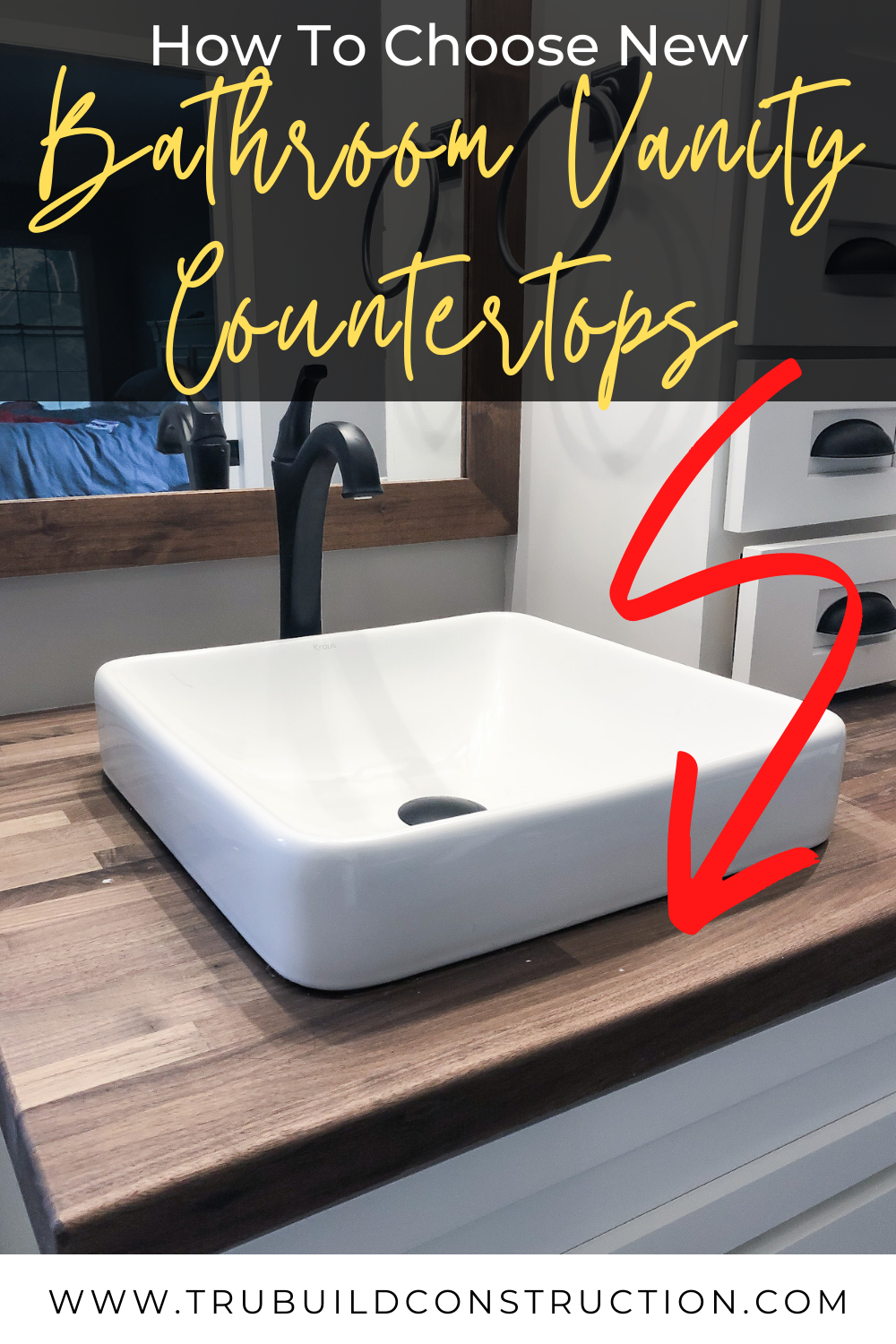Replacing your bathroom countertop can significantly enhance the look and functionality of your bathroom, turning a dated or worn-out space into a fresh and stylish retreat. This renovation project offers a variety of material options, each with unique advantages and considerations. Whether you’re aiming for a luxurious spa-like atmosphere or a simple, modern update, choosing the right countertop material is key to achieving your desired aesthetic and performance.
One popular choice for bathroom countertops is granite. Known for its durability and natural beauty, granite comes in a wide range of colors and patterns, making it easy to find a design that complements your bathroom decor. Granite is heat-resistant and scratch-resistant, which is beneficial in a bathroom setting. However, it requires regular sealing to prevent stains and water damage. While granite can be expensive, its longevity and timeless appeal often justify the investment for many homeowners.
Quartz is another excellent option for bathroom countertops. Engineered from natural quartz and resin, quartz countertops are non-porous, making them resistant to stains, moisture, and bacteria. This makes quartz an ideal low-maintenance option for bathrooms. Quartz is available in numerous colors and patterns, including options that mimic natural stone. Although quartz can be pricier than some other materials, its durability and ease of maintenance make it a popular choice.
Marble countertops offer a classic, luxurious look that can elevate the elegance of any bathroom. Marble is a natural stone known for its beautiful veining and sophisticated appearance. It’s relatively heat-resistant, but it is porous and can stain or etch easily, especially from acidic substances. Regular sealing and careful maintenance are required to keep marble looking its best. Despite its higher maintenance needs and cost, many homeowners choose marble for its unmatched aesthetic appeal.

Laminate countertops provide a budget-friendly alternative that offers a wide variety of colors and patterns. Made from layers of plastic bonded to a particleboard core, laminate can mimic the look of more expensive materials like granite or wood. Laminate is easy to clean and maintain but is less durable than natural stone or quartz, being prone to scratches, burns, and water damage if not properly cared for. However, its affordability and versatility make it a popular choice for budget-conscious renovations.
Solid surface countertops, such as those made from Corian, offer a seamless and non-porous surface that is easy to clean and maintain. These countertops are available in a wide range of colors and patterns and can be custom-shaped to fit any bathroom layout. Solid surface materials are resistant to stains and bacteria, making them a hygienic choice for bathrooms. However, they are not as heat-resistant as natural stone and can be susceptible to scratches and dents. Despite these drawbacks, solid surface countertops provide a versatile and attractive option for bathroom renovations.
Tile countertops offer a highly customizable and versatile option for bathrooms. Available in materials such as ceramic, porcelain, and natural stone, tiles come in an endless array of colors, shapes, and sizes, allowing for unique and personalized designs. Tile is durable and heat-resistant, but grout lines can stain and require regular cleaning and maintenance. While the installation can be more labor-intensive, tile countertops can be a cost-effective way to achieve a high-end look.
Concrete countertops provide a modern, industrial aesthetic that can be customized with various colors, finishes, and embedded materials like glass or stone. Concrete is incredibly durable and heat-resistant, but it is porous and must be sealed to prevent staining and water damage. It can also develop hairline cracks over time due to natural settling or temperature changes. The installation of concrete countertops is complex and typically requires professional expertise, adding to the overall cost.

Butcher block countertops, made from strips of wood glued together, offer a warm, natural look that can complement a variety of bathroom styles. While wood is less common in bathrooms than in kitchens, it provides a unique, organic aesthetic. Butcher block requires regular maintenance, including oiling to prevent water damage and maintain its appearance. It is also susceptible to scratches and dents but can be sanded down and refinished as needed. For those seeking a distinctive and cozy feel, butcher block can be a great option.
Glass countertops provide a sleek, modern look that can make a bold statement in any bathroom. Glass is non-porous, making it resistant to stains and bacteria. It is also heat-resistant and easy to clean. However, glass can be prone to scratching and may show fingerprints and water spots more readily than other materials. Despite these considerations, the unique aesthetic and contemporary feel of glass countertops make them an appealing choice for many homeowners.
Recycled glass countertops are an eco-friendly option that combines the beauty of glass with sustainability. Made from crushed glass embedded in a resin or cement binder, these countertops are available in a wide variety of colors and patterns. They are durable and resistant to stains and heat, but can be expensive and may be prone to chipping and cracking. The environmental benefits and unique appearance of recycled glass countertops make them a popular choice for those looking to make a green statement.
Stainless steel countertops, while more common in kitchens, can provide a sleek and modern look in bathrooms as well. Stainless steel is incredibly durable, heat-resistant, and easy to clean. It is also non-porous, making it resistant to stains and bacteria. However, stainless steel can scratch and dent, and fingerprints and smudges are highly visible. Despite these drawbacks, the industrial chic of stainless steel can add a contemporary touch to a bathroom.
Soapstone countertops offer a smooth, matte finish and a soft, soap-like feel. This natural stone is heat-resistant and non-porous, making it resistant to stains and bacteria. Soapstone’s color ranges from light gray to deep charcoal, and it can develop a beautiful patina over time. However, soapstone is softer than other stones and can scratch and dent more easily. It also requires regular oiling to maintain its appearance. Despite these considerations, soapstone’s unique, aged look and natural charm make it a desirable option.
Onyx countertops provide a stunning, translucent appearance that can add a touch of luxury to any bathroom. Onyx is a natural stone known for its striking patterns and colors. It is relatively soft and can scratch, etch, and stain easily, requiring careful maintenance and regular sealing. Onyx is also more expensive than many other countertop materials. Despite its high maintenance and cost, the dramatic and unique look of onyx makes it a favorite for those seeking a high-end, show-stopping design.
Paper composite countertops are an innovative and sustainable option made from recycled paper and resin. These countertops are durable, heat-resistant, and have a warm, natural look that can resemble wood or stone. They are also relatively easy to maintain and can be sanded down and refinished if damaged. However, paper composite countertops can be expensive and are not as widely available as other materials. Their eco-friendly credentials and unique appearance make them an attractive choice for environmentally conscious homeowners.
Travertine countertops offer a distinct and elegant look with their characteristic natural veining and warm, earthy tones. Travertine is a form of limestone that is relatively soft and porous, requiring regular sealing and maintenance to prevent stains and water damage. It is also prone to scratching and etching from acidic substances. Despite these challenges, many homeowners appreciate the natural beauty and unique texture of travertine, making it a popular choice for those seeking a sophisticated and timeless design.
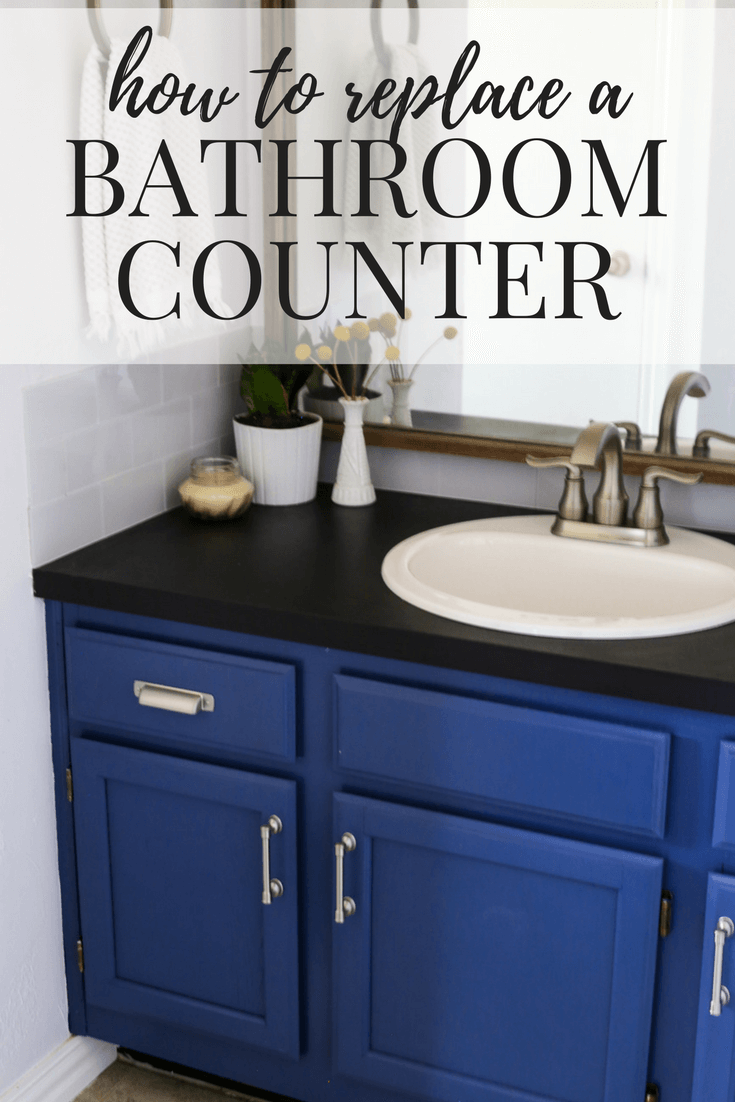
Common Mistakes to Avoid
When replacing bathroom countertops, several common mistakes can compromise the success of your renovation. Firstly, failing to set a realistic budget can lead to overspending or choosing lower-quality materials. It’s crucial to plan your budget carefully and consider all costs, including materials, installation, and potential maintenance.
Another mistake is neglecting to consider the overall bathroom design. Your new countertop should complement existing elements like cabinetry, flooring, and fixtures. Choosing a material or color that clashes with the rest of your bathroom can result in a disjointed appearance.
Overlooking the durability and maintenance requirements of different materials can also cause problems. Some materials, like granite and quartz, are durable and low maintenance, while others, like marble and wood, require more care. Ensure you choose a material that fits your lifestyle and maintenance preferences.
Improper installation is another critical mistake. Even the best materials can look and perform poorly if not installed correctly. Hiring a reputable and experienced professional for the installation is essential to achieving a high-quality finish.
Lastly, ignoring functionality can be a major pitfall. While aesthetics are important, your countertop should also meet your practical needs. Consider how you use your bathroom and choose a material that supports your habits and routines.

What is the best material for bathroom countertops?
The best material for bathroom countertops depends on your preferences, budget, and lifestyle. Granite and quartz are popular for their durability and low maintenance, while marble offers a luxurious look. Laminate and tile are more budget-friendly options, and solid surface materials provide a seamless and versatile finish. Consider your priorities and needs to determine the best material for you.
How much does it cost to replace bathroom countertops?
The cost of replacing bathroom countertops varies widely based on the material and scope of the project. Laminate countertops can be as low as $20 per square foot, while high-end materials like granite and marble can exceed $100 per square foot. Installation costs also vary, so it’s essential to get multiple quotes and factor in all expenses.
How do I maintain my new bathroom countertops?
Maintenance requirements vary depending on the material. Granite and quartz are relatively low maintenance, requiring regular cleaning with mild soap and water and occasional sealing for granite. Marble needs more care to prevent staining and scratching. Wood countertops require regular oiling, while stainless steel needs frequent cleaning to remove fingerprints and smudges. Always follow the manufacturer’s care instructions.
Can I install new bathroom countertops myself?
While some homeowners may be able to install countertops themselves, especially with materials like laminate or tile, it’s generally recommended to hire a professional for most installations. Proper installation is crucial for the durability and appearance of your countertops. Professionals have the tools and experience to handle complex materials like granite, quartz, and concrete.
How do I choose the right countertop color for my bathroom?
Choosing the right countertop color involves considering the overall color scheme of your bathroom, including cabinets, flooring, and fixtures. Neutral colors like white, beige, and gray are versatile and timeless, while bold colors can make a statement. It’s also helpful to bring samples home and see how they look in your bathroom’s lighting before making a final decision.

Replace Vanity Top And Faucet – DIY Network

How to Replace a Vanity Top (and save $$$) Craving Some Creativity
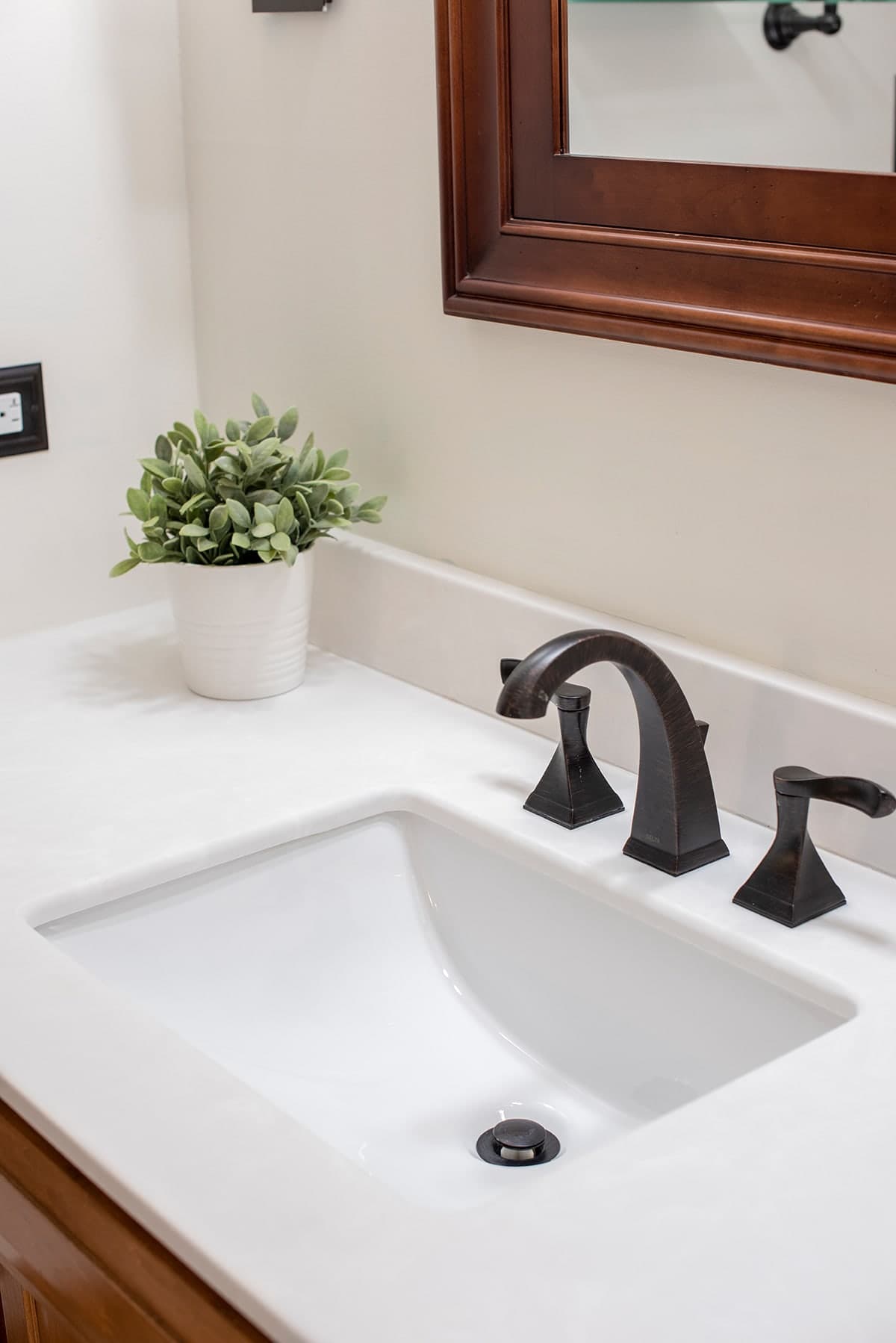
How to Replace a Vanity Top (and save $$$) Craving Some Creativity
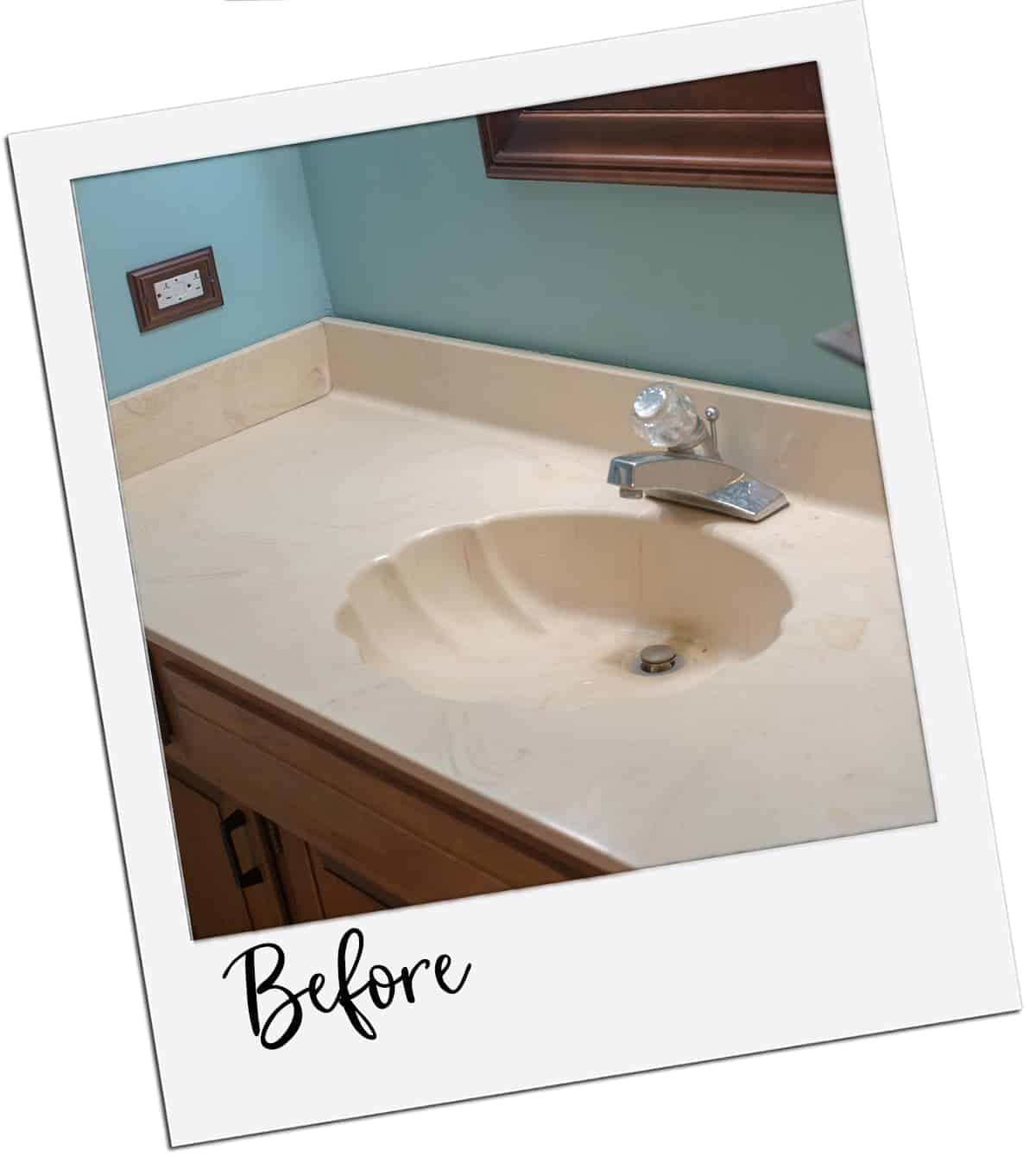
How to Install a Vanity Top – Onyx Sink Top

How to Replace A Bathroom Countertop
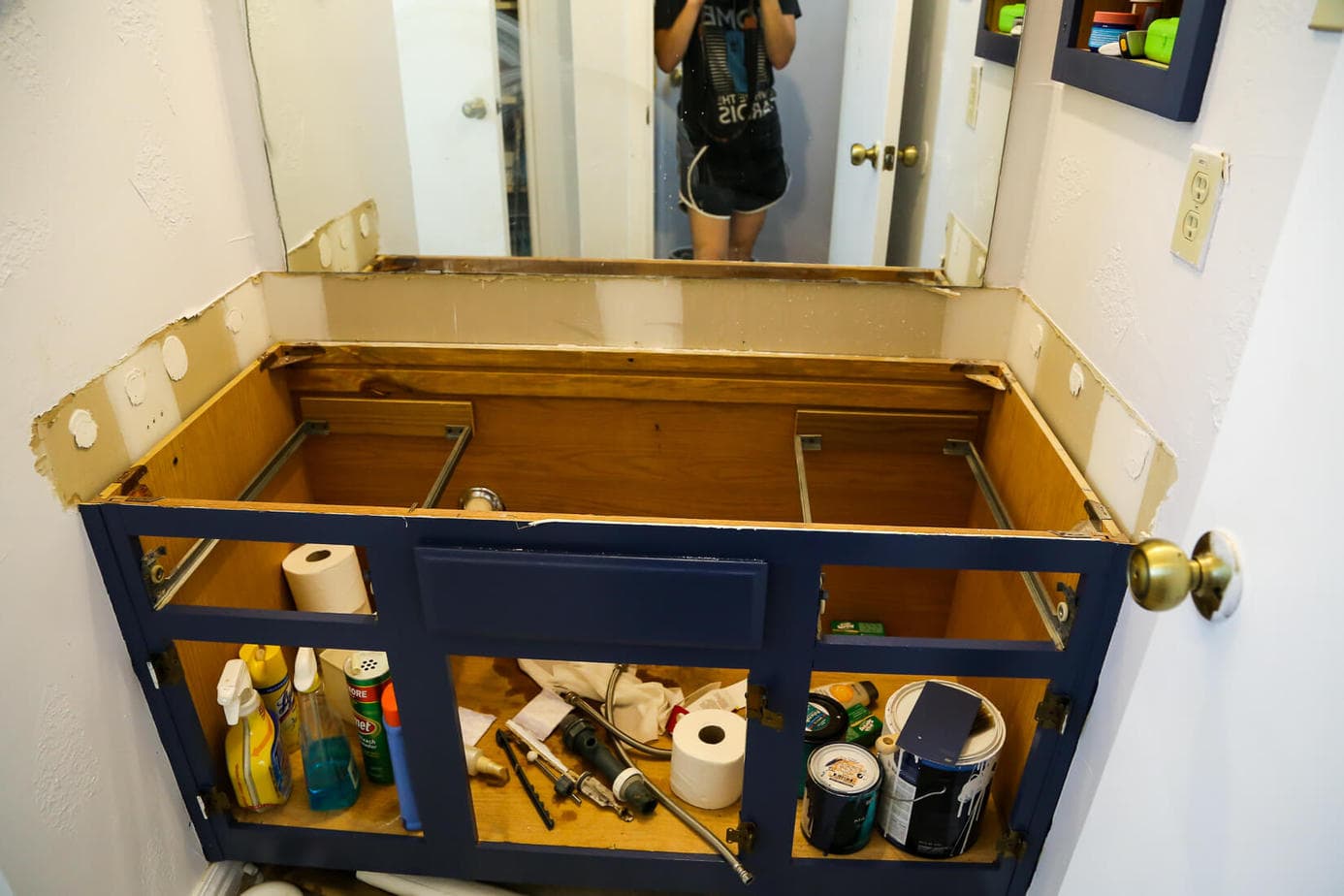
Related articles:
